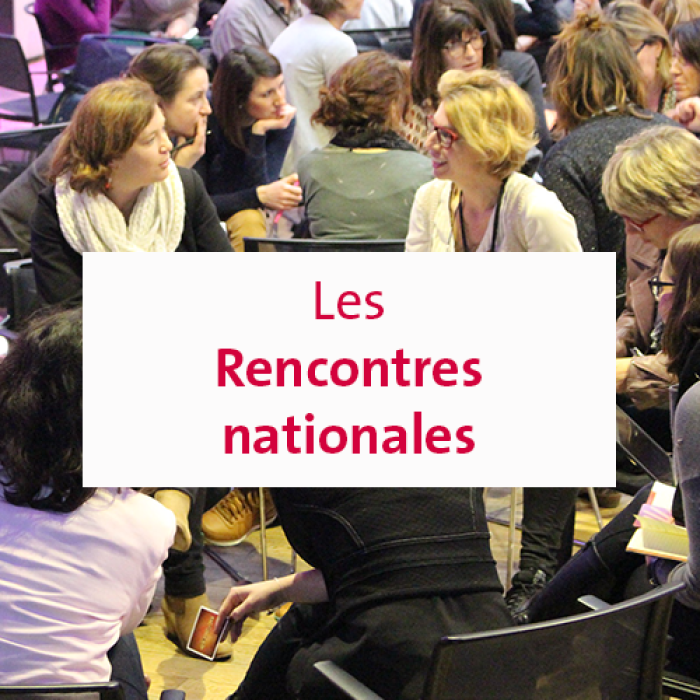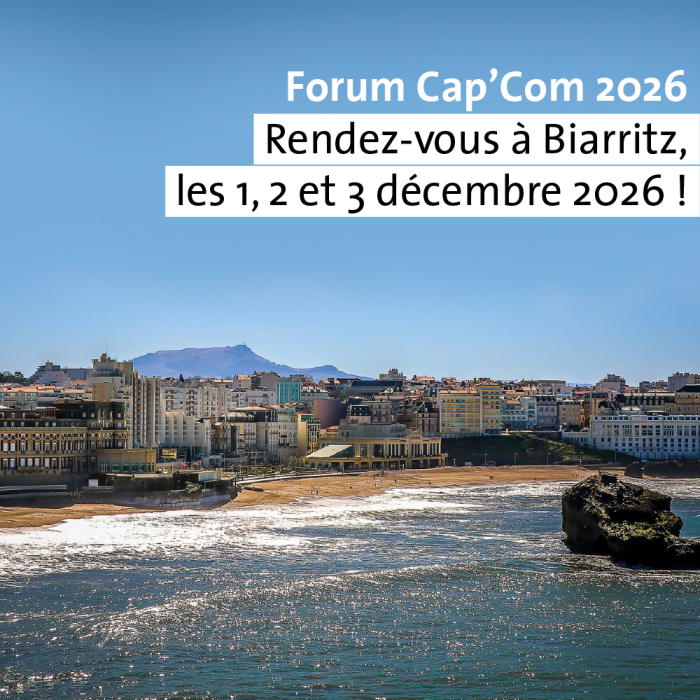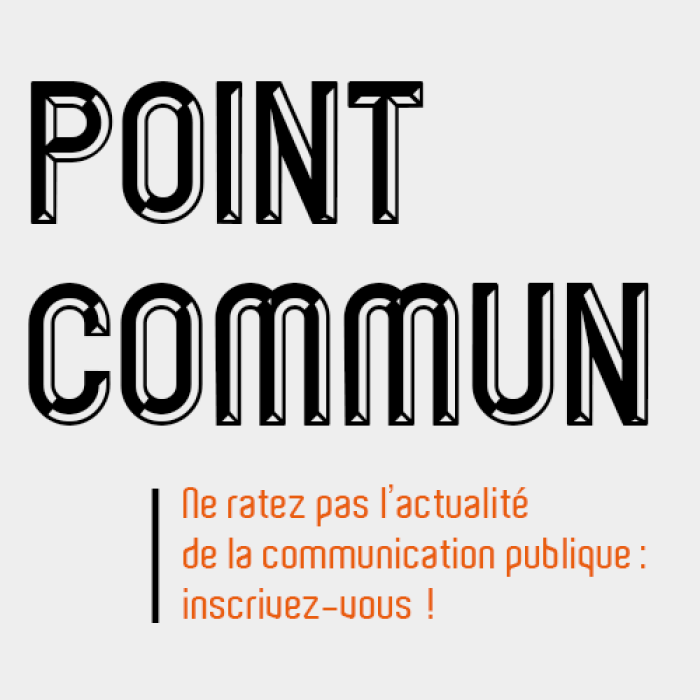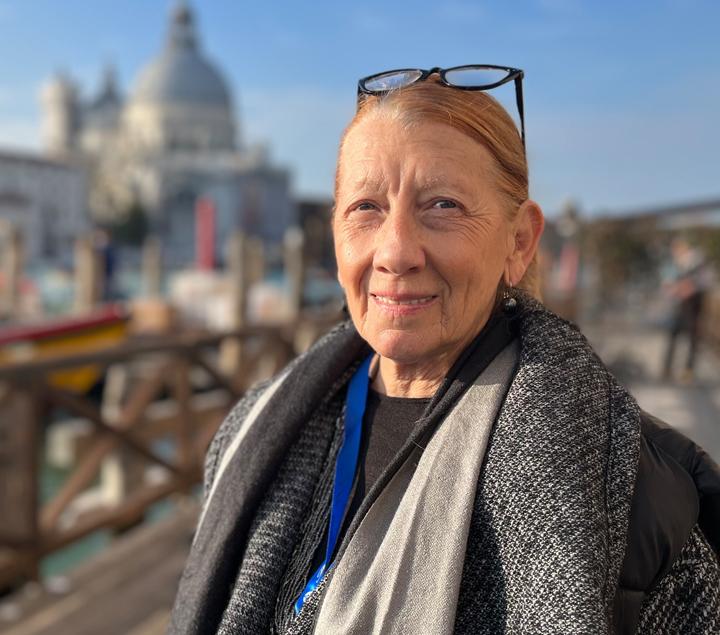
Local communicators networking in Italy
There are only a few organisations representing local public communicators. This is because in many countries the existence – or recognition – of this form of communication in local areas is not immediately evident, and the needs are not as great as they are in France. Talking about this with our Italian colleagues, who work in a public space comparable to that of France, is therefore always interesting. We interviewed Leda Guidi, President of Compubblica, the Italian association for public and institutional communication.
Commonality: We share some commonalities. Which ones are the most obvious to you?
Leda Guidi: The most obvious is the age of the association. Ours was founded in 1990, 32 years ago. It was the brainchild of a group of public communication professionals who worked either at the central state level or at the level of territorial coordination structures or decentralised government agencies. They were active in all kinds of communication fields and had a fairly broad view of their profession. At the start, there were a significant number of people who were working without a clear framework. But then we created the association; we gave it a formal structure. Of course, there were those organic, spontaneous connections, based on shared needs for common training, but there was also a need to take things further. I was there from the outset. I was working in institutional communication, in 1986 at the Province of Bologna’s press office and in 1988 at the city of Bologna’s press department and mayor’s office. This was at about the same time as your network, Cap’Com, and the Club of Venice were founded.
Before, we were doing this work without realising that it was a profession.
Leda Guidi
I personally became aware during this period that there was a real opportunity for the profession. Before, we were doing this work without realising that it was becoming a profession in its own right. And then there were some major reforms in the Italian civil service, between 1990 and 2000, along with State reform. Many laws changed the landscape of public administration, especially at the local level. One example is the direct election of mayors in 1993. Before that, mayors were elected by municipal councils. This led to political communication making increasingly significant inroads into public communication. At that time, we professional communicators felt there was a need to strengthen and stimulate relations with citizens, around public action, on the ground, beyond the institutional communication that was coming out of the press offices. The legal framework is therefore very important for us, if not fundamental, as it separates this political rhetoric from public service communication. We did a lot of lobbying to have articles included in the legislation – Italian Law 150 of 2000 – requiring public administrations to set up a public relations office and create spaces open to citizens. This momentum was carried forward by local authorities in particular: it is always better separate political communication from relations with citizens, to better meet the concrete needs and expectations of communities. The same law also introduced separation between political responsibility and implementation: in other words, separating the executive from the legislative. During this period, the scope and statutory autonomy of local communities were redefined. Lastly, this was the period when the first Italian law on the transparency of public life was enacted. Our association, Compubblica, was one of the protagonists of this reform package. We put forward written proposals and actively participated in the drafting of the law itself.
Reminder of the Press Release of 25 November 2022:
During the Club of Venice’s plenary meeting on 24 and 25 November 2022, Compubblica, the Italian association of public and institutional communication, and Cap’Com, the French local public communication network, agreed to strengthen their ties with the aim of stimulating discussions between public communicators from both sides of the Alps on best practices, skills development and the future challenges of the profession. The two organisations will reach out to public communicators’ networks in other European countries in an effort to share these common practices and promote inclusive, citizen-oriented methods.
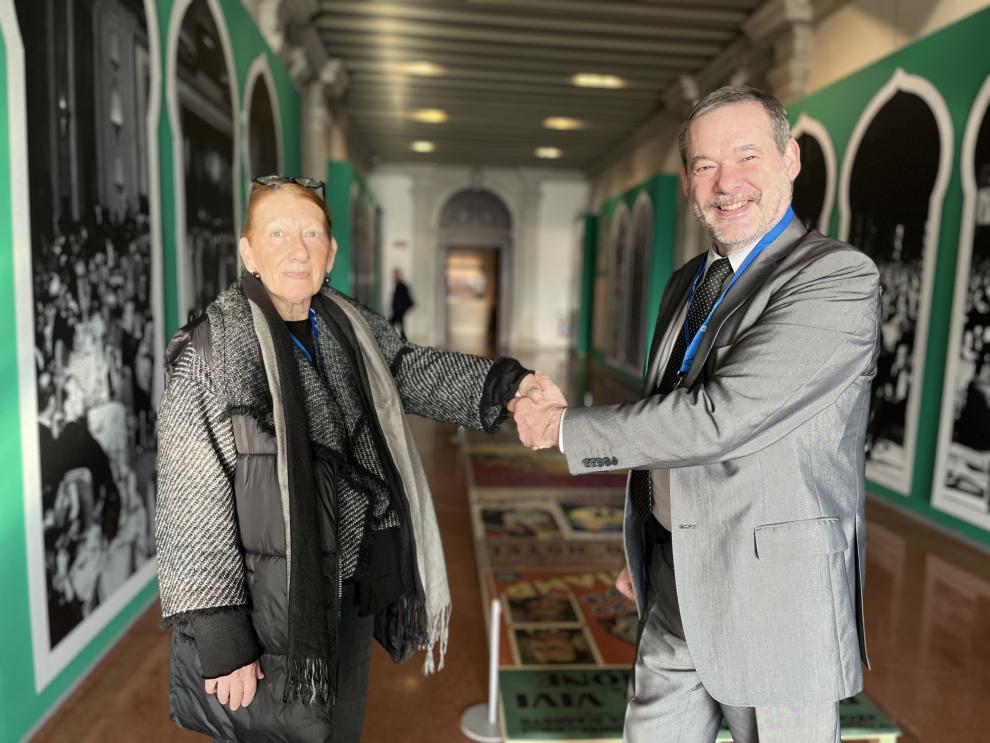
Commonality: It seems that your association has taken this further, in particular to help separate public communication from the communication of elected officials.
Leda Guidi: Yes. The law in Italy defines the professions of public communication and the professions of companies. We thought that public authorities should separate these professions into three areas:
- direct citizen communication
- communication targeting the media, with journalists (the press office)
- and lastly, spokespersons for the governance of organisations, who depend on public authorities and elected officials.
To separate these three functions – which need to work together but have different objectives – our association has worked to create official profiles for each of them, especially for public communicators (number 1 in this list). They work with all the traditional and technological means available, using an omnichannel and dialectical approach, to bring citizens and administrations closer together through participative and collaborative processes. In Italy, there are more than 8,000 municipalities and there is too much disparity between them. We have to continue to ensure that the role of local public communication is recognised and practised as a strategic lever for local development. This is our field, the one we follow and support.
Commonality: In Italy, over that same period, how did you deal with the technical transformations brought about by digital technology?
Leda Guidi: : That period was certainly one characterised by the introduction of new computer technologies and the many tools that came with them. In Bologna, we witnessed the appearance of the first internet-based citizen's network (Iperbole), with every resident in the city being provided with an email address and free internet connection by the city council. Digital technology was not only a new retail space for the private sector, but it also had a public and “collective intelligence” dimension. And municipalities supported these “civil and civic” internet-based networks.
Commonality: What are your current concerns?
Leda Guidi: There are several issues, but I think above all you need to have the right skills and the right critical perspective when it comes to digital communication. You must not fall prey to the powerful seduction of techno-enthusiastic rhetoric. We have been under the thumb of rapid technological transformation for far too long. We have viewed these technologies as more efficient tools for doing the same things we did before, with the same reference points we had before. But this is a new public space. And we have an ethical and professional responsibility to organise and “shape” this digital space, and to see it as a new shared resource that benefits everyone. It is essential for empowering citizens to act. The turmoil surrounding this digital transformation created not only a kind of fascination with these technologies (which is something I saw every day), but also a degree of apprehension. But you have to be open to learning new skills and, more importantly, have a holistic view of media ecosystems. Nothing more. Public communicators also need to able to see the bigger picture, not just the technical side. They need to have a critical eye, to be aware of the complexity of this space.
We need to develop skills for different types of communication.
Commonality: Could you expand on this concept of awareness?
Leda Guidi: We have a duty to coordinate and link together private spaces, social media, public spaces and data. We are aware of the issues, the dangers and the challenges. This responsibility and this awareness go hand in hand with having new skills, with one key word: inclusion. I would add two other aspects: gender issues and the ecological transition. Citizens must be involved in deliberative processes and must be empowered to act and have their say. This is important. It is necessary. We cannot shy away from it. There must be equal access and freedom of expression, which is very similar to the approach to public debate you have in France. And lastly, it seems to me that this is a common European principle. It is required everywhere. We need to develop skills for different types of communication. We were already moving in this direction, but there was no immediate and unavoidable need.
Commonality: How do you see future developments?
Leda Guidi: The most important thing for us is that we continue to work on ensuring that public communication is recognised as a catalyst for change and for modernising public administrations. We must keep moving forward. The flip side to this challenge is assessing and measuring the impact: how do we put in place mechanisms to do this? Generally speaking, the current approach is more quantitative, but we also need to be able to assess how our actions involve citizens and meet their genuinely heartfelt commitments. We need to put in place indicators, qualitative as well as quantitative. As Verena Ringler said here in Venice this year, we need to get local people involved in the implementation and public communication processes – focus groups, the ongoing relationship, and so on. This requires communicators to have new skills in participatory approaches. Internally, this will mean working in a more cross-functional, horizontal and open way. Communication professionals will need to have shared capabilities in their administrations and promote teamwork. We need to work hard on internal and organisational communication. We need to form alliances with other professionals in other fields within their organisations (management, transition, production, management, etc.), but we also need to strengthen our area of expertise by networking with other communicators, at the European level for example. That is why we are here at this Club of Venice plenary meeting. As regards Compubblica, we are also at a turning point. A steering committee, a scientific committee and regional delegations are being restructured following the recent elections of the new board at the end of June 2022. We are pushing for the rebirth of the network in the provinces. We want to network with other associations that have similar activities to ours, looking for synergies. And we welcome the publication of this Commonality newsletter!

